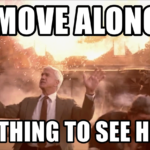The WA Premier has joined Queensland’s Deputy Premier in blaming GPs for hospital overcrowding.
Queensland’s Deputy Premier and former health minister Steven Miles is in hot water after blaming GPs for a surge in emergency department presentations.
According to The Courier Mail, Mr Miles suggested that an “absolute collapse” in primary health care had led to GPs refusing to see patients with respiratory symptoms, adding pressure to the hospital system.
“[There are] lots and lots of people who can’t get to see a GP, even if they have a regular GP many GPs are declining to see people with respiratory illnesses, sometimes before they get a covid test, sometimes not at all, and that is driving lots and lots more people to our emergency departments,” he said.
Friday 5pm update: WA Premier Mark McGowan has made similar comments today, telling press that GPs were “driving more people into our hospitals” and invoking the Hippocratic Oath.
“Isn’t the Hippocratic Oath that you’re supposed to allow anyone to come in and receive medical attention?” Mr McGowan said.
“So, I’d just ask our GPs across the state, if people are unwell, please deal with them. Referring them to our emergency departments just puts additional pressure onto our hospitals.”
RACGP WA Chair Dr Ramya Raman said Mr Miles should be mindful of the pressures facing practices in his state.
“GPs don’t need to be reminded about the Hippocratic Oath; we are fully aware of our responsibilities as health practitioners,” she said
Mr Miles also reportedly denied that the state’s health system was in trouble prior to the pandemic.
But he has since claimed that his words were taken out of context by the newspaper.
Friday 4pm update: ACRRM’s Queensland councillor Dr Brendan Carrigan told The Medical Republic that Mr Miles’ comments show a lack of understanding about rural general practice.
“Mr Miles may not know that the majority of his emergency departments in [rural] Queensland are actually staffed by general practitioners,” Dr Carrigan said.
Dr Matt Masel, chair of the Queensland GP Alliance – a collaboration between AMA Queensland, ACRRM, RACGP and the Rural Doctors Association of Queensland – said Mr Miles should not attempt to shift blame.
“He blames the federal government for not investing in general practice,” Dr Masel said.
“On that we can agree with him. Funding for access to primary care is inadequate. But the Queensland government needs to fix hospitals and not try to shift blame.”
GPs, the alliance pointed out, have not only provided community-based care throughout the pandemic, but also delivered more than 60% of the total covid vaccines in the state with very little resourcing from both levels of government.
All four organisations which make up the alliance have been warning for years that the GP shortage will only get worse if it remains financially untenable for patients to access GP care.
“[The current state of affairs] is a slap in the face for GPs and will do nothing to fix medical workforce shortages in Queensland,” Dr Masel said.
“Government needs to put patients first.”
RACGP president Adjunct Professor Karen Price said that now was not the time to throw blame at GPs and called for increased government support instead.
The college’s rural chair, Queensland GP Dr Michael Clements, said GPs in his state “are doing their best” and are often trying to use telehealth to keep waiting rooms safe for vulnerable patients.
“Most coughs and colds do not need antibiotics and so GPs have been able to manage these symptoms well remotely,” he told NewsGP.
“We are seeing patients with upper respiratory tract infections face-to-face where possible after triage.
“Some practices are not well set up for this though, and neither federal nor state governments have given any extra support for PPE and the costs of making sure everyone stays as safe as possible.”
This is not the first time that the “GPs aren’t pulling their weight” narrative has been used to explain hospital ramping in Queensland.
Early last year, then-CHO Dr Jeanette Young wrote a letter to GPs imploring for a return to face-to-face consults.
“It is crucial that general practitioners get back to seeing patients; this can build community confidence [on] our road back from covid-19, get patients back to primary care where their holistic health needs are being met, and ease the pressure on our emergency departments,” Dr Young said.





